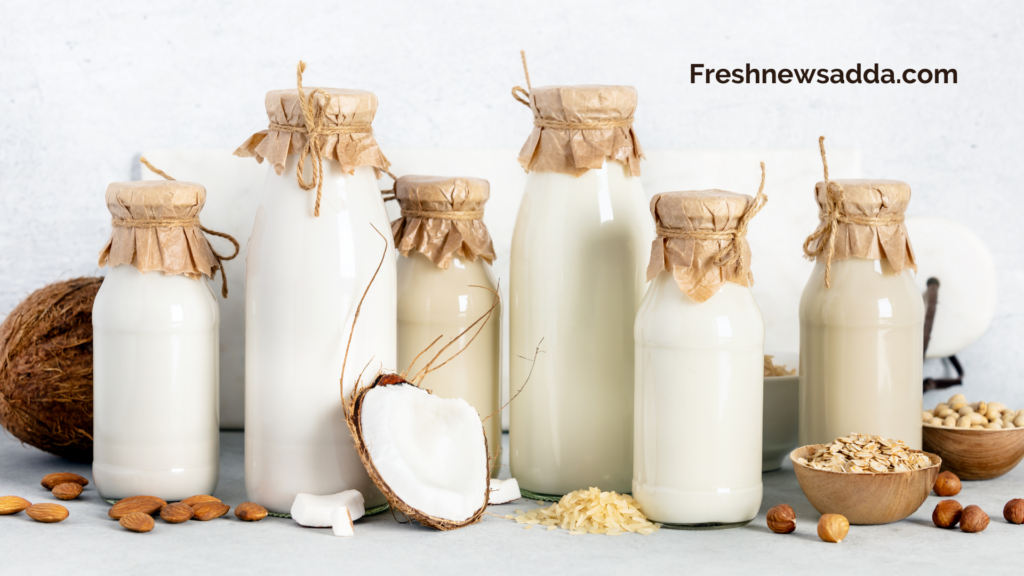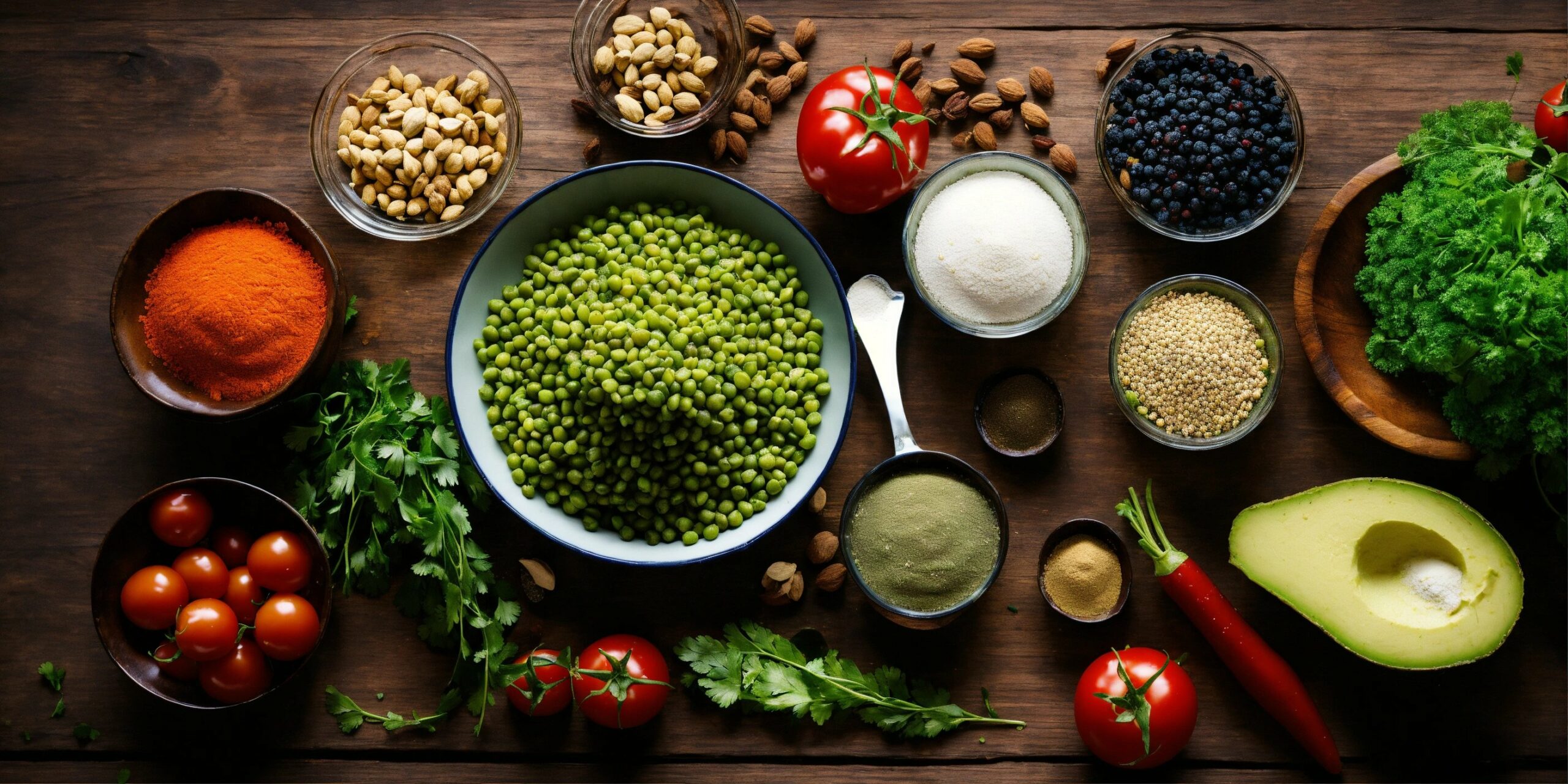Embracing the Green Revolution: Five Plant-Based Lifestyle Trends to Embrace in 2023
- Plant-Based Beauty and Personal Care Products: The year 2023 is poised to witness the flourishing trend of integrating plant-based ingredients into beauty and personal care products. This exciting movement is set to bring about a surge in the availability of plant-based skincare, haircare, and cosmetic offerings, catering to the increasing demand for sustainable and nature-inspired alternatives. These innovative products will harness the incredible power of natural ingredients, such as botanical extracts, essential oils, and plant-derived substitutes for synthetic chemicals.

By embracing plant-based beauty and personal care products, individuals can revel in the benefits of gentler formulations that work in harmony with their skin. The use of botanical extracts and essential oils can provide nourishment, hydration, and rejuvenation, while plant-derived alternatives to synthetic chemicals ensure a safer and more sustainable approach to personal care. These plant-based ingredients often boast a wealth of vitamins, antioxidants, and other beneficial compounds that can promote skin health and vitality.
A notable example of a brand that champions this movement is Lotus Botanicals. With a deep commitment to creating products that are 100% safe, certified, and cruelty-free, Lotus Botanicals has established itself as a frontrunner in the plant-based beauty industry. Their skincare and haircare formulations are meticulously crafted using ethically grown, plant-derived ingredients, ensuring that consumers can indulge in the beauty ritual with confidence and peace of mind.
By opting for plant-based beauty and personal care products, individuals not only prioritize their own well-being but also contribute to the larger environmental cause. Plant-based ingredients are often more sustainable and eco-friendly, as they rely on renewable resources and minimize the reliance on harmful chemicals and animal-derived ingredients. This sustainable approach aligns with the growing consciousness surrounding the importance of reducing our ecological footprint and preserving the planet for future generations.
In the dynamic landscape of beauty and personal care, the rise of plant-based alternatives heralds a transformative era. With an array of options on the horizon, consumers can make empowered choices that prioritize their health, ethical values, and environmental impact. By embracing the beauty of nature and harnessing the potential of plant-based ingredients, individuals can embark on a journey of self-care that celebrates both personal well-being and global sustainability.
2. Plant-Based Diets for Athletic Performance:

In the ever-evolving landscape of nutrition and fitness, plant-based diets are rapidly garnering recognition as a viable and promising option for athletes and fitness enthusiasts alike. As we venture into 2023, it is evident that there will be an amplified focus on plant-based eating patterns specifically tailored to optimize athletic performance. This heightened emphasis stems from a growing understanding of the remarkable benefits that a well-balanced plant-based diet can offer in terms of fueling the body, supporting recovery, and enhancing physical performance. Achieving the optimal balance of plant-based proteins, carbohydrates, and fats is key to effectively nourishing and energizing the body for athletic endeavors. Plant-based proteins, derived from sources such as legumes, tofu, tempeh, quinoa, and nuts, offer essential amino acids necessary for muscle repair and growth. These protein sources, coupled with an assortment of plant-based carbohydrates like whole grains, fruits, and vegetables, provide a sustainable and steady release of energy to fuel physical activity.Moreover, the inclusion of healthy plant-based fats from sources like avocados, nuts, seeds, and plant oils contributes to the overall energy profile and supports vital bodily functions. These fats offer essential fatty acids, such as omega-3 and omega-6, which play a crucial role in reducing inflammation, improving cardiovascular health, and supporting brain function.By embracing a plant-based lifestyle, athletes can harness a multitude of advantages that directly impact their performance and well-being. Improved recovery is one of the primary benefits, as plant-based diets are rich in antioxidants, phytonutrients, and anti-inflammatory compounds that help reduce muscle soreness, speed up healing processes, and minimize oxidative stress.Furthermore, the reduction in inflammation achieved through a plant-based diet can have a profound impact on physical performance. Chronic inflammation, often caused by an excessive intake of animal products and processed foods, can hinder recovery, compromise immune function, and impede overall athletic performance. Plant-based diets, on the other hand, offer a wealth of anti-inflammatory properties that contribute to optimal health, improved muscle function, and enhanced endurance.The evolving understanding of plant-based nutrition and its impact on athletic performance underscores the importance of exploring this dietary approach in 2023 and beyond. As athletes and fitness enthusiasts recognize the potential benefits of plant-based eating patterns, they can embrace the opportunity to optimize their physical abilities, achieve their fitness goals, and promote long-term well-being. By leveraging the power of plant-based nutrition, athletes can unlock a pathway to peak performance, ensuring that their dietary choices align with both their athletic aspirations and their commitment to health and sustainability.
3. Plant-Based Fashion:

The concept of embracing a plant-based lifestyle extends far beyond culinary preferences and ventures into the captivating realm of fashion. As we embark upon the year 2023, we can anticipate a remarkable surge in interest surrounding sustainable and cruelty-free alternatives to conventional animal-derived materials within the fashion industry. This transformative trend will herald the rise of plant-based fabrics and materials that showcase the beauty of nature, such as organic cotton, hemp, pineapple leather (Piñatex), and mushroom leather (MuSkin), among others. These innovative and eco-conscious alternatives will capture the spotlight, playing a pivotal role in reducing the fashion industry’s profound environmental impact while promoting sustainable and ethical practices.
Organic cotton, known for its gentle touch against the skin and minimal environmental footprint, will continue to gain traction as a preferred choice for conscious fashion enthusiasts. Its cultivation avoids the use of harmful pesticides and chemical fertilizers, nurturing a more sustainable and environmentally friendly approach to textile production. By opting for organic cotton, individuals can revel in the softness and breathability of garments while contributing to the preservation of soil health, water conservation, and biodiversity.
Hemp, a versatile and robust plant, will also enjoy a resurgence in popularity within the fashion landscape. Renowned for its durability and natural resistance to pests, hemp offers a sustainable alternative to traditional fibers. With its low water and land requirements, hemp cultivation stands as a beacon of eco-consciousness. Fabrics made from hemp boast excellent breathability, moisture-wicking properties, and a lustrous appearance, elevating fashion with its distinct texture and aesthetic appeal.
Another exciting development in the plant-based fashion revolution is the emergence of innovative materials like pineapple leather (Piñatex) and mushroom leather (MuSkin). These plant-based leather alternatives captivate with their cruelty-free production methods and sustainability credentials. Piñatex, derived from pineapple leaf fibers, presents a remarkably versatile and durable alternative to animal leather, promoting resource efficiency and social impact. Similarly, MuSkin, derived from mushroom caps, showcases a remarkable resemblance to traditional leather, offering a cruelty-free and biodegradable alternative that resonates with conscious consumers.
By embracing plant-based fabrics and materials, fashion enthusiasts can actively contribute to mitigating the fashion industry’s environmental impact. These alternatives help reduce reliance on animal-derived materials, thus alleviating pressure on ecosystems and promoting a more ethical and sustainable approach to fashion. The rise of plant-based fashion not only embodies a shift towards greater environmental consciousness but also celebrates the boundless creativity and innovation that nature offers.
In the dynamic world of fashion, 2023 will mark a transformative year where plant-based alternatives take center stage. By choosing garments crafted from organic cotton, hemp, pineapple leather (Piñatex), mushroom leather (MuSkin), and other plant-based materials, individuals can make a profound statement, aligning their style choices with their values and actively contributing to a more sustainable and compassionate fashion industry. Together, we can embark on a journey of redefining fashion norms, embracing the exquisite beauty of plant-based alternatives, and fostering a brighter future for both style and the planet we call home.
4. Plant-Based Dairy Alternatives:

The surging popularity of dairy alternatives made from plants, such as almond milk, soy milk, oat milk, and coconut milk, is a testament to the growing demand for sustainable and compassionate food choices. As we delve into the year 2023, we can anticipate an extraordinary expansion in the availability and variety of plant-based dairy alternatives gracing the market. This exciting trend will delight consumers with an even wider array of options to suit their individual preferences and dietary needs.
Plant-based dairy alternatives offer a wealth of benefits beyond their delicious flavors. These alternatives often come fortified with essential vitamins and minerals, ensuring individuals can maintain a balanced and nutritious diet without compromising on taste or health. Whether used as a creamy base for lattes and smoothies, poured over cereal, or incorporated into delectable recipes, plant-based dairy alternatives showcase their remarkable versatility in the culinary world.
One of the most significant advantages of plant-based dairy alternatives lies in their sustainability credentials. Unlike traditional dairy products, which require vast amounts of resources such as water, land, and feed for livestock, plant-based alternatives present a more environmentally friendly choice. By opting for almond milk, soy milk, oat milk, coconut milk, and other plant-based options, consumers can significantly reduce their ecological footprint and contribute to the preservation of precious natural resources.
The production of plant-based dairy alternatives requires fewer resources and generates fewer greenhouse gas emissions compared to conventional dairy farming. This reduction in environmental impact offers a compelling reason for individuals to choose plant-based alternatives as part of their sustainable lifestyle. Moreover, by embracing these alternatives, consumers can actively support the movement towards a more compassionate and ethical food system, as these alternatives do not involve animal exploitation.
In 2023, the plant-based dairy alternative market will undoubtedly witness a tremendous expansion, catering to the diverse tastes and preferences of consumers. Whether it’s the creamy richness of almond milk, the smooth and velvety texture of soy milk, the naturally sweet and satisfying oat milk, or the tropical indulgence of coconut milk, individuals will have an abundance of options to explore and enjoy.
By embracing plant-based dairy alternatives, consumers can savor delicious and nourishing beverages while aligning their choices with their values and contributing to a more sustainable future. With their ever-growing popularity, these alternatives are poised to revolutionize the way we perceive and consume dairy products. Together, we can embrace a plant-based lifestyle that not only benefits our health but also protects the planet we call home.
5. Zero Waste and Low-Waste Plant-Based Living:

In our ever-evolving world, the pursuit of zero waste and low-waste lifestyles has gained significant momentum, fueled by a growing awareness of the environmental consequences associated with our daily actions. As we venture into the year 2023, we can anticipate a remarkable surge in the adoption of zero waste and low-waste plant-based living, embodying a collective commitment to reducing our ecological footprint and preserving the planet we call home.
This inspiring trend encompasses a range of practices that aim to minimize waste generation and promote sustainable habits. Individuals will increasingly prioritize strategies that target packaging waste, as they seek out innovative alternatives to single-use items. By embracing reusable bags and containers, they can make a tangible impact by significantly reducing the accumulation of plastic waste in our landfills and oceans. This shift towards more conscious consumption patterns will empower individuals to make informed choices that align with their values and foster a more sustainable future.
Furthermore, composting food scraps will emerge as a fundamental aspect of zero waste and low-waste plant-based living. By diverting organic waste from landfills and transforming it into nutrient-rich compost, individuals can nourish the soil and support the growth of plants, closing the loop in the cycle of life. This practice not only minimizes greenhouse gas emissions but also promotes a circular economy that values the natural resources provided by our planet.
Embracing a minimalist approach to consumption will also become increasingly prevalent in 2023. By reevaluating our relationship with material possessions, we can curtail excessive consumption and prioritize quality over quantity. This mindful shift will empower individuals to make thoughtful purchasing decisions, investing in durable and sustainable products that stand the test of time. As we embark on this journey towards minimalism, we will redefine our notion of fulfillment and find solace in the simplicity of living with fewer material possessions.
Plant-based living will be at the forefront of this zero waste and low-waste movement, as individuals recognize the environmental benefits of embracing a diet centered around plant-based foods. By prioritizing fruits, vegetables, grains, legumes, and other plant-based sources, individuals can reduce their carbon footprint and conserve precious resources. Plant-based diets are inherently more sustainable, requiring fewer land and water resources compared to traditional animal agriculture. This shift towards plant-based eating not only benefits the environment but also offers individuals the opportunity to improve their health and well-being.
In 2023, the rise of zero waste and low-waste plant-based living will inspire individuals to take meaningful action towards a more sustainable and harmonious existence. By adopting these practices and embodying a mindset of environmental stewardship, we can collectively pave the way for a brighter future. Each small choice and action we make has the power to shape our world, and together, we can create a lasting impact that transcends generations. Let us embark on this transformative journey towards a zero waste and low-waste plant-based lifestyle, where sustainability and compassion coexist in perfect harmony.



